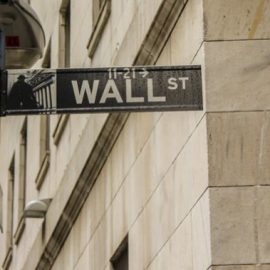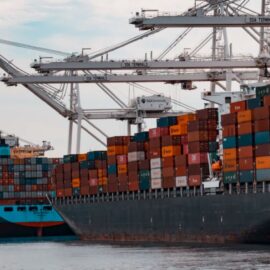
Are you curious about how COVID-19 changed our world? What might the future look like after this global crisis?
Klaus Schwab and Thierry Malleret tackle these questions in their book COVID-19: The Great Reset. They explore the pandemic’s far-reaching effects on various aspects of society. From economics to technology, the authors examine how this crisis reshaped our world.
Continue reading for an overview of this book, and discover the challenges we face and the opportunities that lie ahead in our post-pandemic reality.
COVID-19: The Great Reset
The COVID-19 pandemic has profoundly impacted global systems beyond the health sector, reshaping economic, social, political, environmental, and technological landscapes. In COVID-19: The Great Reset, Klaus Schwab and Thierry Malleret examine how the crisis exposed deep-seated vulnerabilities, accelerated existing trends, and transformed consumer behavior and business operations.
The authors delve into how the pandemic disrupted supply chains, intensified geopolitical tensions, and highlighted societal inequalities. They explore the rise of automation, shift towards stakeholder capitalism, and changing attitudes about work, consumption, and nature. While acknowledging the hardships, they shed light on potential opportunities for resilience and reform in the post-pandemic world.
How COVID-19 Changed the World
The COVID-19 pandemic has emerged as a complex emergency, profoundly affecting systems worldwide. Its impact extends far beyond health issues, causing deep changes in economic systems, global interactions, societal structures, environmental factors, and technological progress.
Exposing Vulnerabilities & Exacerbating Existing Problems
The pandemic has laid bare deep-seated weaknesses across interconnected domains of our global economic system, social constructs, geopolitical landscapes, ecological setups, and technological foundations. It’s exacerbated pre-existing difficulties and vulnerabilities across different global industries, highlighting how global risks are systemic and interlinked.
Research suggests that the emergence of infectious diseases can trigger a series of events potentially leading to the breakdown of global governance structures and increased social turmoil. The outbreak has exposed the fragility of supply chains, particularly those relying on just-in-time inventory, and its impacts on areas like “high-frequency” trading. It’s also intensified pre-existing societal disparities, underscoring the stark variations in risk exposure among different social groups.
Moreover, the health crisis has revealed shortcomings in many nations’ healthcare systems, which were overwhelmed due to insufficient funding. This emphasizes the critical need for improved preparedness and delivery of health services.
Shifting Global Dynamics
The pandemic has accelerated the decline in global interconnectedness, reduced international cooperation, and intensified the rivalry between the United States and China. As globalization retreats, there’s an increasing push for national self-reliance. Balancing this trend requires complex decisions that reconcile the demands of advancing global economic integration, safeguarding democratic governance, and upholding the autonomy of nation-states.
This retreat from global interdependence could lead to significant outcomes, including trade and currency conflicts, social unrest, and intensified nationalism. The health crisis has also escalated the pre-existing rivalry between the U.S. and China, raising concerns about a prolonged division in economic and technological spheres.
Heightened Risks for Vulnerable Nations
The outbreak has intensified the vulnerability and decline of specific countries, increasing the risk of turmoil, conflicts, and extensive displacement. It’s exacerbated existing challenges in nations already struggling with adversity. Economic disturbances and conflicts could trigger migration movements on a scale similar to the 2016 European crisis.
The United Nations’ call for a global ceasefire has been largely ignored, indicating that many regions continue to be plagued by unrest and discord. This situation highlights the urgent need for creative strategies to stabilize societies and prevent the disintegration of state structures in these vulnerable countries.
The Economic Impact of COVID-19
The pandemic has triggered a significant contraction in the world’s economic activity, leading to unprecedented levels of unemployment, widespread business closures, and a rise in financial inequality. It’s caused an abrupt halt to global economic operations, resulting in a substantial increase in joblessness and a noticeable drop in countries’ GDPs. The longer lockdowns remain in place, the more intense their detrimental effects become, potentially causing lasting and irreversible damage to the economic framework. As unemployment rises, businesses close, and capital investments freeze, we’re likely to see increased social unrest and a push for a more sustainable and fair recovery.
Changes in Industries & Consumer Behavior
The enforcement of movement restrictions and physical distancing requirements have significantly transformed industries like tourism, hospitality, and retail, as well as our social interactions and consumer habits. Businesses that rely on in-person interactions have been forced to make expensive changes to their service delivery methods. These modifications include expanding the distance between customers, enhancing cleaning routines, and revising work procedures to account for the lasting changes expected to persist even after the pandemic ends.
Acceleration of Digital Transformation
The pandemic has accelerated the transition to digitalization, necessitating a rapid adoption of remote work, online services, and greater automation. The need for isolation has hastened the uptake of digital technologies in numerous industries, with executives noting a significant increase in digital interactions that they expect to have lasting impacts. Innovations in automation and biotechnology are being fast-tracked, and remote work has increased, revealing disparities in job vulnerabilities.
The integration of automated systems in the workplace is being sped up by the pandemic, prompting businesses to rely more on machinery and artificial intelligence to minimize human contact and decrease health-related risks. We’re seeing an increasing dependence on autonomous delivery systems and software designed to automate regular tasks, which is a clear indication of rapid technological advancements that are displacing jobs previously held by individuals.
Looking Ahead
The health crisis has compelled a thorough reassessment of global governance structures and a collective shift towards recovery plans that prioritize sustainability and fairness as we move beyond the emergency. As we navigate these changes, it’s clear that the pandemic’s effects will continue to shape our economic landscape for years to come.
The Impact of COVID-19 on Businesses
The COVID-19 pandemic has triggered significant changes across industries and businesses. Let’s explore how it’s reshaping various aspects of our economy and society.
Supply Chain Transformation
Companies are reevaluating their logistics networks, prioritizing robustness over efficiency. The pandemic has exposed the fragility of global supply chains that rely on just-in-time delivery. To minimize disruptions, businesses are diversifying their supply sources and integrating contingency plans. They’re focusing on developing supply networks that enhance readiness for unexpected events.
Growing Government Influence
Public sector influence in private businesses is increasing. Authorities are imposing conditions for financial rescue, boosting government purchasing, and enhancing regulatory controls. During the health crisis, governments have relaxed their traditional stance on economic independence, intervening in different market segments with monetary support initiatives and enhanced worker protections. This has resulted in increased scrutiny and potential oversight of business practices.
Moving forward, governments are expected to continue implementing policies aimed at protecting jobs and businesses. They’re also addressing emerging issues such as employee safety and promoting the acquisition of domestically produced goods. Additionally, they’re easing the transition to digital platforms and services by loosening technological regulations.
Shift Towards Stakeholder Capitalism
The pandemic is accelerating the shift towards a capitalist system that prioritizes stakeholder concerns and eco-friendly business strategies. There’s a growing focus on environmental, social, and corporate governance (ESG) factors. This trend is driving businesses to consider their stakeholders’ expectations more closely, emphasizing their responsibility in societal and ecological matters.
Evidence suggests that companies emphasizing ESG issues might outperform their conventional counterparts. This, coupled with growing demands for transparency and change from the public and investment community, is fueling the trend.
The rise in sustainable practices is also spurring creativity, leading to economies that emphasize material reuse and the development of products designed for prolonged use and easy maintenance. Businesses that incorporate sustainability, community impact, and ethical governance into their core strategies are viewed as more resilient and essential in tackling complex, interconnected issues.
Additional Consequences & Industry Shifts
The pandemic has necessitated a heightened focus on digital creativity and innovation within industries. Small enterprises have capitalized on their agility to embrace innovative business approaches. Customers are showing a growing preference for convenient accessibility, resulting in a reduction of brick-and-mortar retail spaces.
The insurance industry is reconsidering its foundational strategies due to broadening risk diversification. Many industries are experiencing significant transformation as they adopt advanced technology and decentralized work methods to improve efficiency and adaptability.
The current political atmosphere is encouraging the development of domestic supply chains, strengthening the case for national security and protectionist policies. The push for supply chain diversification and redundancy now garners bipartisan political support.
Social & Economic Implications
Short-term employment initiatives during the pandemic have sparked discussions about the viability of social safety nets and the social contract. There’s an increased focus on the entitlements of freelance and contract workers, which could lead to significant legislative changes.
The progression of a stakeholder-focused business model fosters the implementation of sustainable and fair practices. In addition to environmental factors, the shifting economic landscape is influenced by elements like income inequality, employment diversity, and corporate transparency, steering us toward a framework that emphasizes collective well-being and prosperity.
The Future of Work
The COVID-19 crisis has greatly accelerated the adoption of teleworking, online medical consultations, electronic shopping, and virtual services. These practices are expected to continue beyond the health crisis. Companies across various sectors are modifying their workforce compositions in response to new conditions, as evidenced by the technology industry’s move toward remote work models.
In conclusion, the pandemic has not only reshaped business operations and supply chains but is also redefining the role of governments in the private sector and pushing companies towards a more sustainable and stakeholder-focused future.
How COVID-19 Changed Our Lives
The COVID-19 outbreak has dramatically changed how people think and behave. It’s affected our views on social relationships, time management, and how we use resources and interact with the environment.
A New Sense of Community
The crisis has shown us just how important solidarity and support within local groups are. It’s exposed our vulnerability as humans, forcing us to face our own mortality. This realization could lead to big changes, both personally and societally, highlighting the need for teamwork within countries and internationally.
We’re seeing more youth activism and social media engagement, which could create a stronger sense of unity and shared human identity. However, the pandemic has also fueled nationalism and blame-shifting, leading to misinformation and attempts to find scapegoats. Our heightened awareness of death and fear can inspire both selfless acts and unity, as well as selfish behavior and social unrest.
Rethinking Our Values
The crisis has revealed the complexity of human reactions, with discomfort and uncertainty showing the psychological impact of major change. As we re-examine our social interactions, we might completely reassess community values, potentially leading to legal reforms that recognize essential workers and address significant inequalities.
The pandemic has changed how we view time and what we choose to buy. Confinement may have shifted our perception of time, making us value the present more and prefer a slower lifestyle. This health crisis could alter consumer behavior, encouraging a shift from materialism to simpler, more environmentally conscious living. Many people are reconsidering what’s important to them, focusing more on family time and nature rather than material possessions.
Entertainment, retail, and food industries have evolved, moving towards digital engagement and at-home entertainment. Post-pandemic, people are likely to value independence, environmental awareness, and social responsibility more than their previous pursuit of wealth.
Reconnecting With Nature
The pandemic has emphasized the importance of outdoor activities and appreciating nature for our mental and physical well-being. It’s highlighted the role of nature and open spaces in promoting health and wellness. There’s a growing recognition that environmental degradation is closely linked to public health crises, changing views on the importance of protecting our natural surroundings.
Physical activity and enjoying nature aren’t just leisure activities; they’re crucial for strengthening our immune system and maintaining overall physical health. The increasing awareness of the connection between human activities, deforestation, and the emergence of pandemics underscores the need to protect diverse ecosystems and manage our natural resources carefully.
All told, this health crisis has given us a chance to reflect and consider transitioning to a more empathetic and environmentally conscious lifestyle. This shift could strengthen our connections with our communities and the natural world, potentially paving the way for societal transformation.






